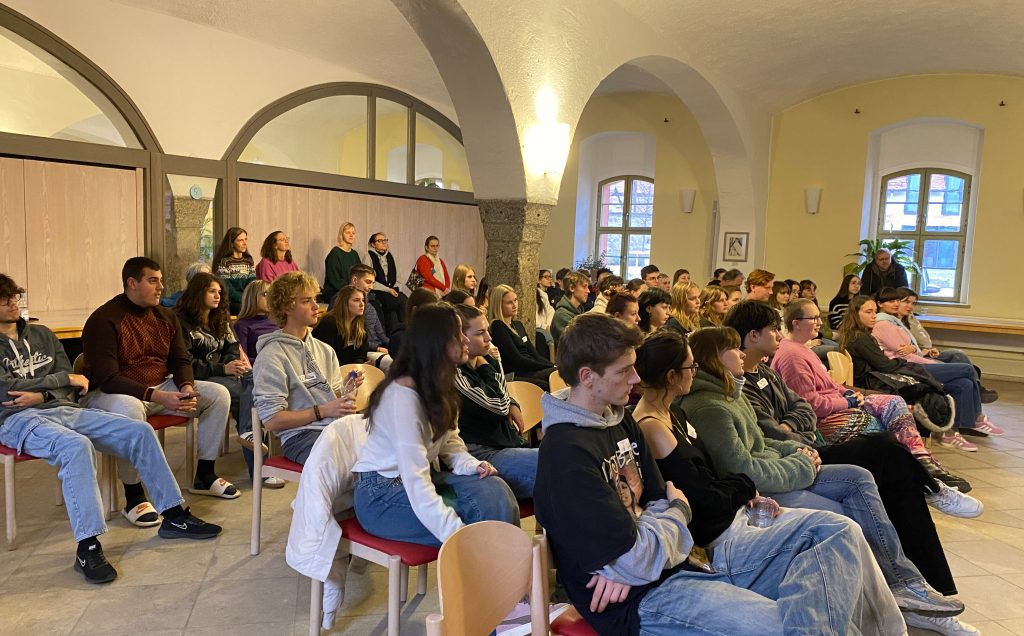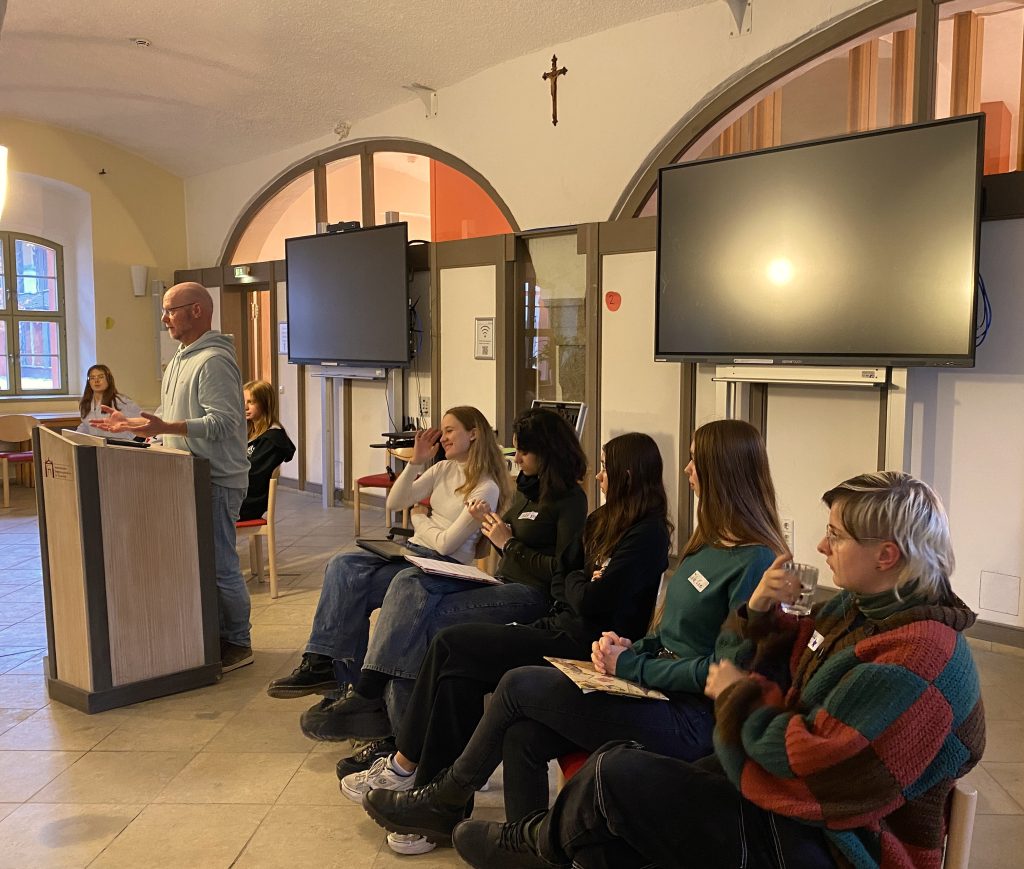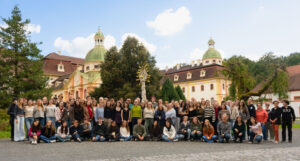by Julie Marečková
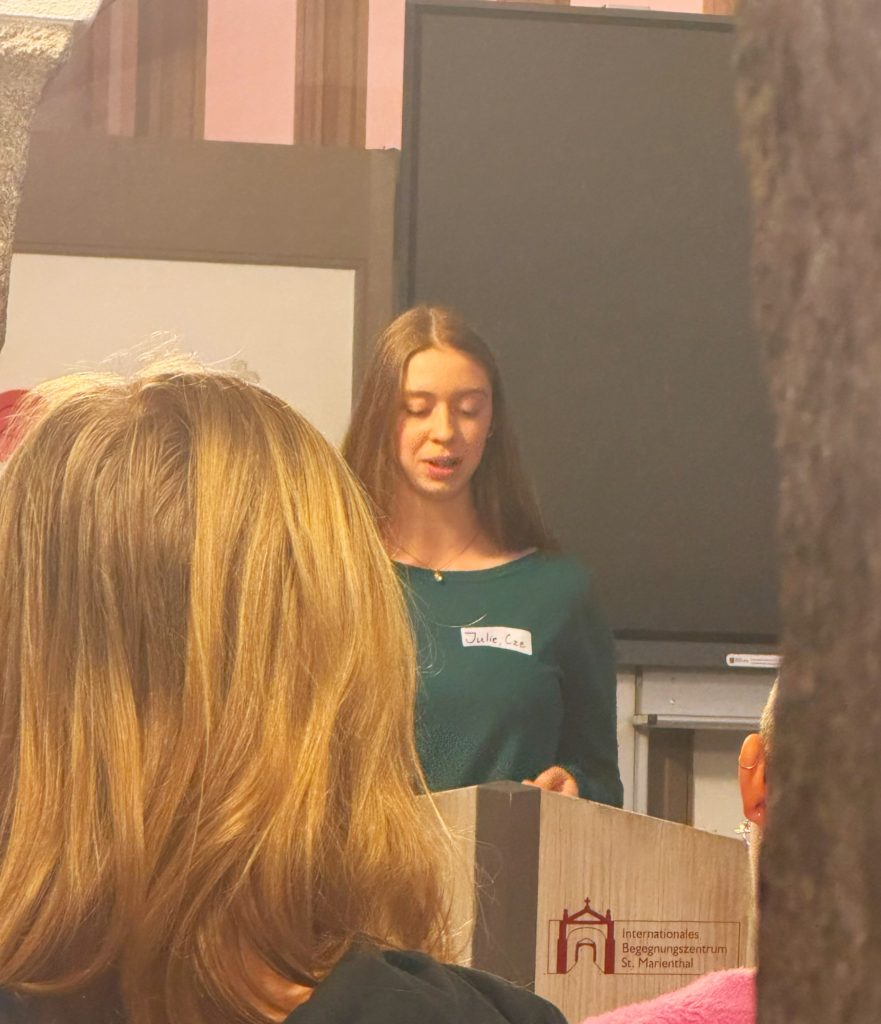
On Monday, November 11, in St. Marienthal two students from each country gathered to discuss an important question: Should social networks be regulated by the EU? Each student shared their views on whether government control of social networks would help or cause new problems.
Social media is a significant part of our lives. Practically, all of us use it for communication, sharing ideas, but also accessing news from around the world. But because not all of the information we read online is true, social media can be dangerous, especially in political context.
Some students argued that regulating social media could reduce problems with disinformation, cyberbullying, and election manipulation. “Some people think government regulation would help fix big problems with social media,” said one student. “But before we give the government power over social media, we need to ask: Do we really want them to have that control?”
Speakers who were against the regulation talked about dangers like silencing voices and leaving only approved narratives, which is basically censorship. Controlling social networks by the EU can also lead to many protests, as citizens may feel like their rights to express themselves are taken away. On the other hand, most newspapers are not truly independent. They are driven by profit, not public interest. “The question is not whether there should be moderation, but who is doing the moderating – and how can we ensure that moderation is fair, transparent, and aligned with our democratic values?”
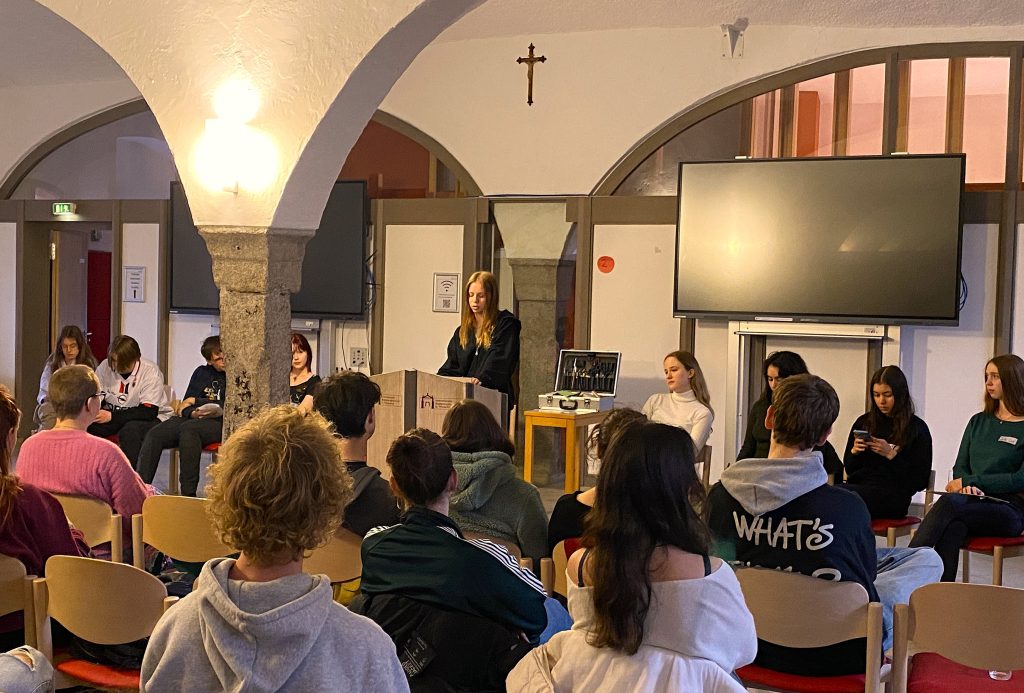
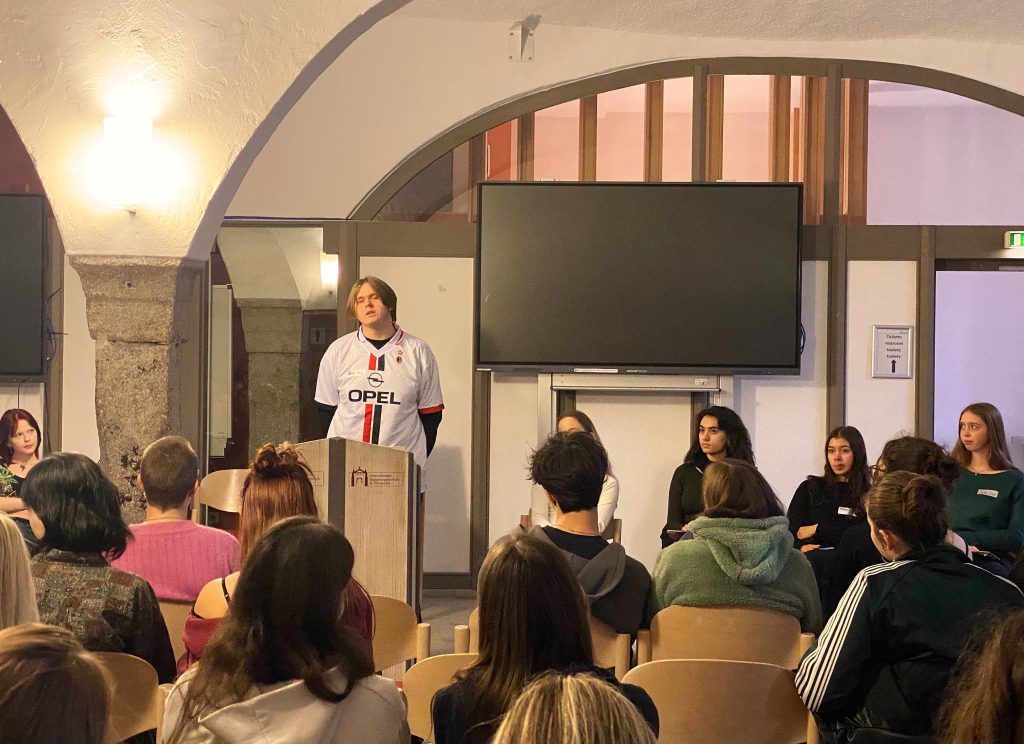
Also, a lot of people do not trust the government to remove just the harmful content and fake news. Moreover, different political parties have different opinions on what exactly “fake news” is. If we do not know this even in one country, how can more countries agree on what content they should remove?
Another issue is that the internet is incredibly big, with millions of websites and posts. That is why some students said that regulating all the harmful content would be practically impossible.
Mental health is indeed a serious problem and students from both sides agreed on that. Photos and videos we see on social media are often edited and false, but they still raise beauty standards all around the world. This could increase anxiety and low self-esteem, especially among young people. Social networks often work as a tool for cyberbullying, expanding all posts and gossip in a bigger and faster way.
Controlling social networks seems like a great solution in this case; however, some students came up with a different idea. “Instead of rushing to regulate, we should focus on empowering users (of social media) to make informed decisions about the content they consume. Media literacy programs, fact-checking initiatives, and the promotion of critical thinking skills are effective ways to combat disinformation and harmful content without resorting to heavy-handed regulation,” said one of the German students. Many people often consume new information without properly verifying it, and that could lead to spreading more misinformation.
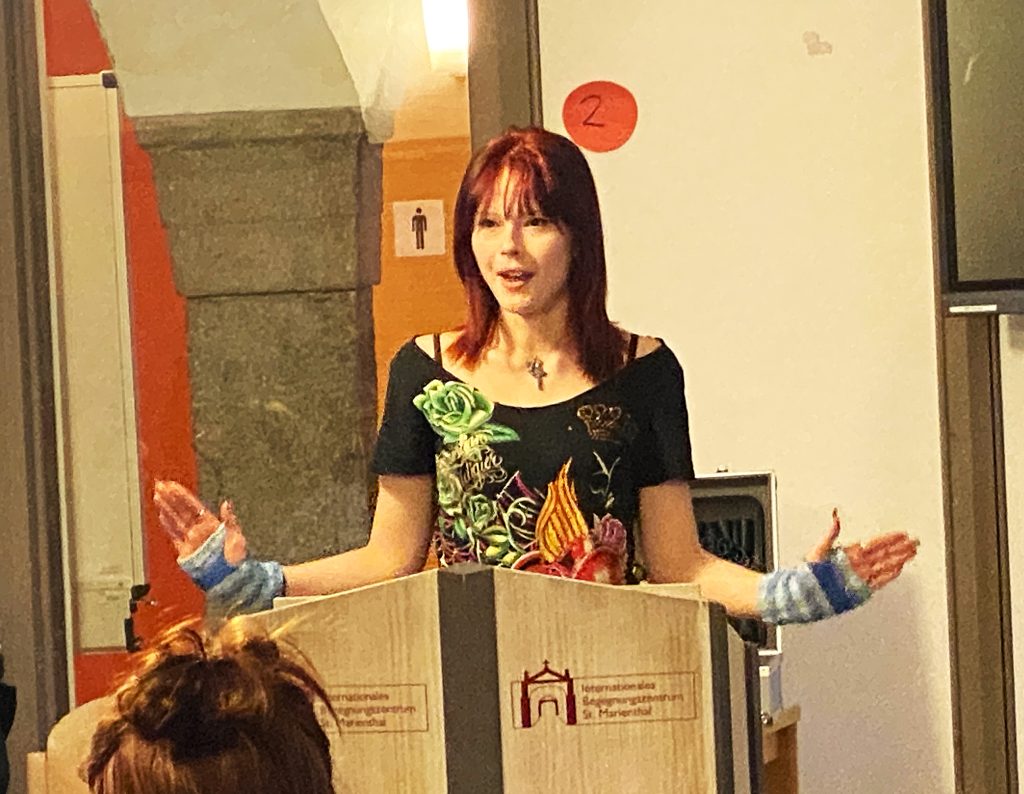
Educating children on how to use social media is crucial these days. The internet is everywhere and most children have their own phones. So when they do not know how to use them safely, many can get hurt. Young people often have problems realizing that what we see on the internet are just little parts of someone’s life – someone we usually do not even know – and now, these days it is very easy to use Photoshop or AI! So teaching children about self-esteem can help a lot here.
In conclusion, the students may held opposing views, but most agreed that social media plays a big role in our lives, not only for entertainment but also as a source of information and news from around the world. We cannot say if regulation is clearly a good or bad idea, but educating people about the internet is a necessity these days.
